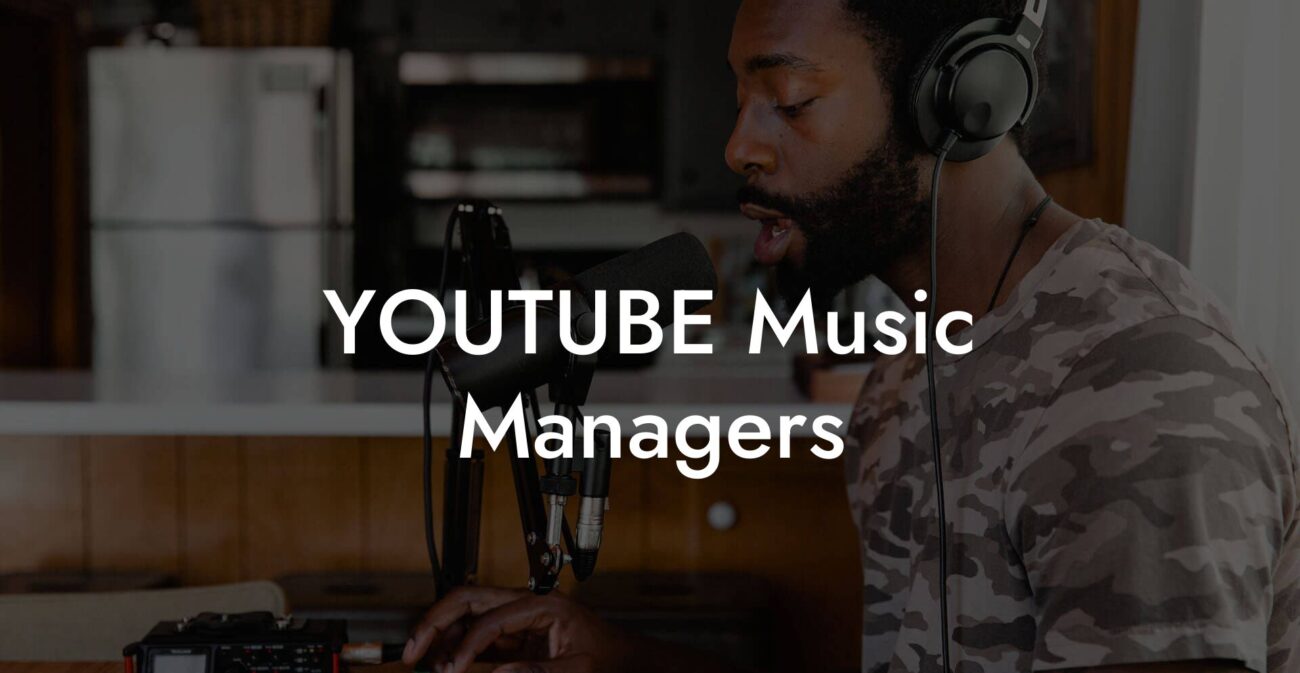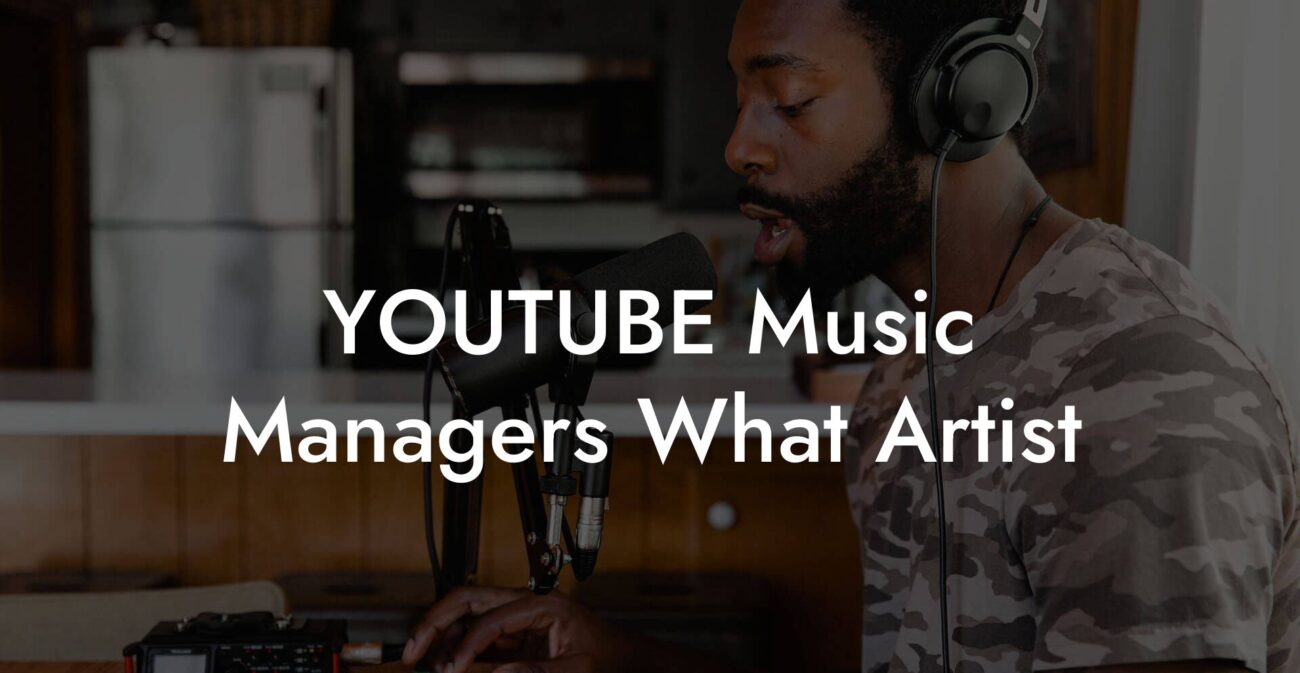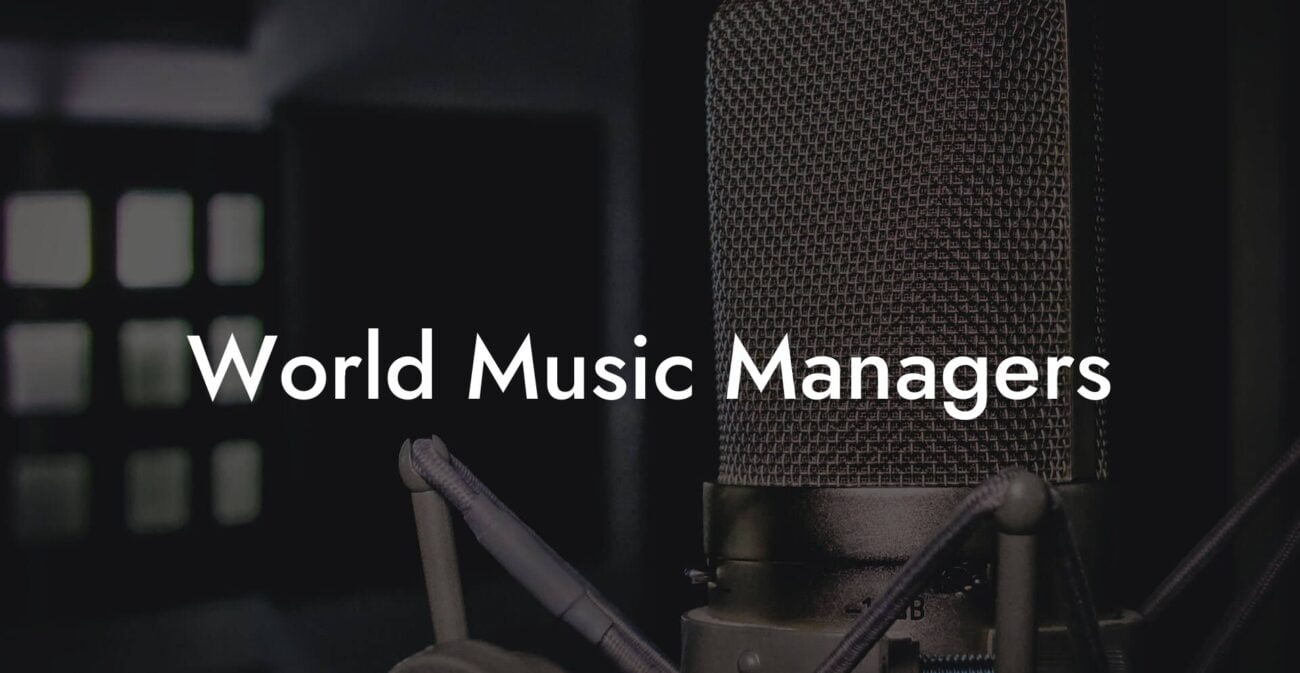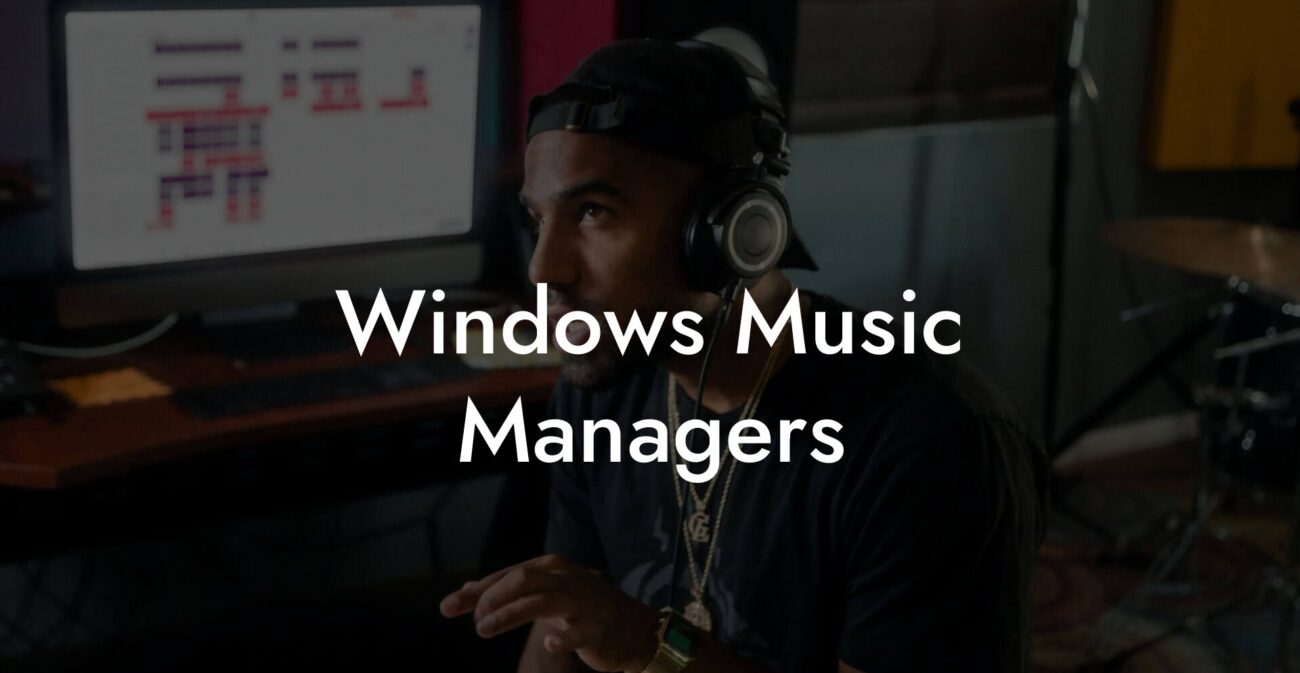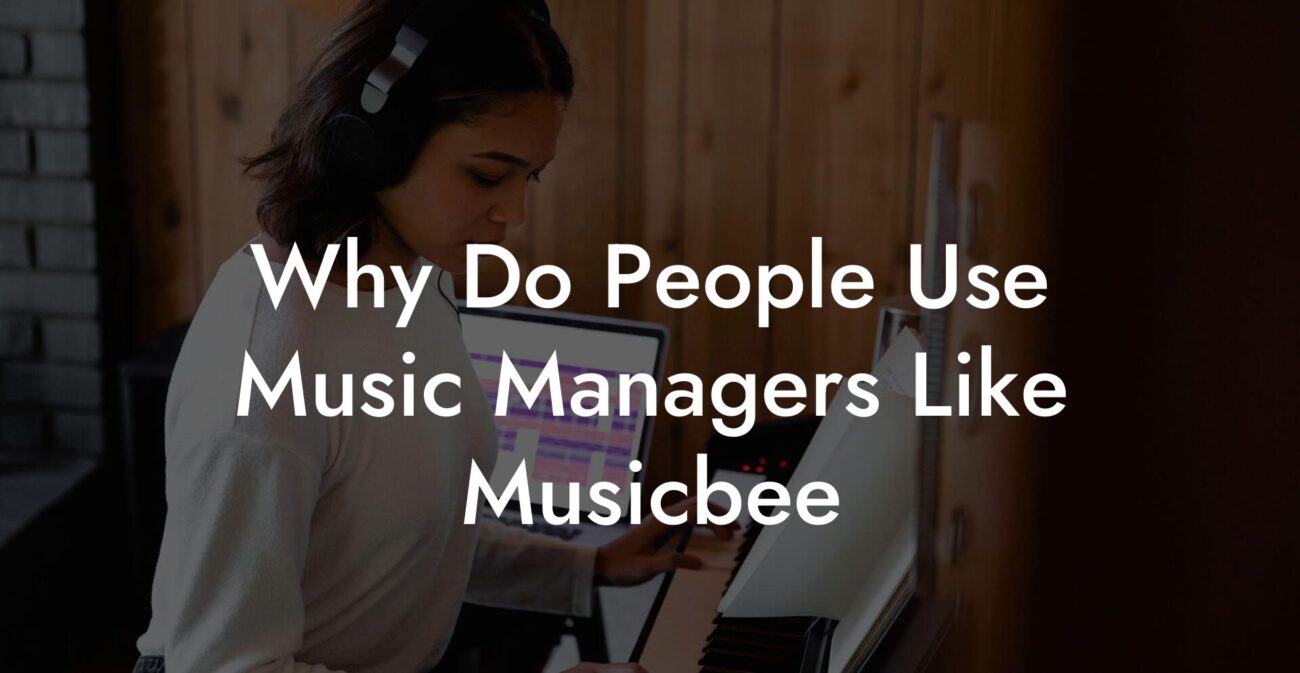Managers are considered the linchpin in the music industry, acting as the silent partner orchestrating the smoother execution of an artist's career. They're the jacks-of-all-trades who keep the machinery of a musician's career oiled and running. Dive into the nitty-gritty of manager's role in the music world in this article.
What Role Do Managers Play in the Music Industry Table of Contents
Understanding the Music Manager's Role
Understanding the Music Manager's Role
A successful career in music is hinged on a myriad of elements, and the music manager is invariably one of them. These professionals act as the glue holding all the pieces together, an intermediary between the artists and the rest of the world.
The Navigator
Managers are the compass of an artist’s career, charting the path they should take. They do this by identifying opportunities, navigating record deals, and building strategic relationships.
Crisis Management
Artists are humans too, facing battles and crises. Managers step in as a crisis strategist during these rocky times, managing relations with the public and other key figures in the industry.
The Negotiator
From record deals to concert bookings, managers often handle negotiations. Importantly, their job is to protect the interest of their artists and get the best deal possible.
The Promoter
An artist's reputation and presence in the industry are crucial for their success. Well, guess who's in charge of that? The Manager! They deal with promotion, publicity, and brand-building.
What Role Do Managers Play in the Music Industry? Example:
Case Study: Colonel Tom Parker and Elvis Presley
Presley and Parker's relationship is perhaps one of the most famous examples of music management. Parker steered Presley through the ups and downs of fame, from his initial rise in the 1950s to his comeback in the late 1960s. The techniques he used are still relevant today. From contract negotiation to crisis management after Presley’s military service, Parker’s influence was unmistakable. It’s a fitting testament to the the pivotal role managers can play in an artist's career.
Frequently Asked Questions
What is the primary role of a manager in the music industry?
The primary role of a manager in the music industry is to guide the career of artists and bands. This involves strategizing for their success, negotiating contracts, securing opportunities for the artist, and handling day-to-day business affairs to allow the artist to focus on creating and performing music.
How do managers find new talent in the music industry?
Managers often discover new talent through a variety of channels, including live shows, social media platforms, music blogs, referrals from industry professionals, and unsolicited demos sent by aspiring artists. They have an eye for potential and seek artists they believe they can develop and successfully promote.
What are the typical responsibilities of a music manager?
Typical responsibilities of a music manager include booking gigs, negotiating contracts and deals, managing finances, overseeing marketing and promotion strategies, coordinating with record labels, and providing general career guidance to their clients.
Can a manager help an artist get signed to a record label?
Yes, a manager can significantly help an artist get signed to a record label by leveraging industry connections, pitching the artist's music effectively, and negotiating terms that are favorable to the artist's interests and career plan.
Do music managers work with more than one artist at a time?
Music managers can work with multiple artists simultaneously, depending on their capacity and the level of attention each artist requires. The key is to effectively balance their time to ensure all clients receive the necessary support to progress their careers.
What skills are essential for a successful music manager?
Essential skills for a successful music manager include strong communication, negotiation, networking, organization, problem-solving, financial management, and a deep understanding of the music industry and its trends.
How does a music manager get paid?
A music manager typically gets paid through a commission structure, earning a percentage of the artist's income generated from record sales, performances, endorsements, and other sources of revenue. The standard management fee is generally between 10% to 20% of the artist's gross income.
How long does a management contract typically last?
A management contract duration can vary, but it typically ranges from one to five years. The terms and duration of the contract are usually decided upon through a mutual agreement between the artist and the manager based on their specific working relationship and goals.
What happens if an artist wants to terminate their contract with a manager early?
If an artist wishes to end their management contract early, they must review the termination clause in their agreement. This often requires the artist to provide notice and may involve paying out the remainder of the contract or a negotiated settlement to the manager.
Should upcoming artists always seek a manager?
While having a manager can be highly beneficial, upcoming artists should seek management when they feel their career is at a point that requires professional guidance and when the administrative and business aspects of their career begin to detract from their artistic focus.
What role does a manager play in an artist's branding and image?
A manager plays a crucial role in shaping and maintaining an artist's branding and image. They work to ensure that all aspects of the artist's public profile—from stage presence to social media content—cohesively reflect the artist's vision and appeal to their target audience.
How do managers contribute to an artist's marketing and promotion plan?
Managers help devise and implement marketing and promotion plans that align with the artist's career goals, ensuring the artist's music reaches the intended audience and engagement is maximized across various media and promotional platforms.
Can music managers influence an artist's creative decisions?
While the ultimate creative decisions lie with the artist, managers can offer advice and feedback based on their industry experience and understanding of market trends. It's a collaborative relationship aimed at ensuring that the artist's creative output has the best chance for commercial success.
Do managers coordinate tours and live performances for their clients?
Yes, managers often take on the responsibility of coordinating tours and live performances, which includes booking venues, organizing logistics, budgeting for travel and crew, and overseeing the promotional aspects of the tour.
In what ways can managers help develop an artist's career?
Managers can help develop an artist's career by identifying and creating new opportunities, nurturing industry relationships, offering strategic advice, and frequently assessing the artist's progress and adjusting plans as necessary for continued growth and advancement.
How involved are managers in an artist's recording process?
The level of involvement a manager has in the recording process varies from artist to artist. Some managers are highly involved, offering input on production decisions or selection of songs, while others may provide support primarily in terms of logistics, budgeting, and timelines.
Is it necessary for a manager to have formal education in music or business?
While formal education in music or business can be advantageous, it is not strictly necessary. Many successful managers have built their careers through hands-on industry experience, mentorship, and a strong network of contacts.
Do managers help with an artist's online presence and digital strategy?
Managers often assist with the artist's online presence and digital strategy, ensuring that the artist engages effectively with fans through social media, has a professional website, and that their music is distributed and marketed across appropriate digital channels.
How can a manager improve an artist's earning potential?
A manager improves an artist's earning potential by creating a business strategy that identifies and maximizes income streams, whether it's through touring, merchandising, licensing deals, sponsorships, or other revenue-generating activities.
What challenges do managers face in the music industry?
Managers face various challenges such as navigating the rapidly changing digital landscape, protecting the interests of their artists in contract negotiations, responding to the competitive nature of the industry, and maintaining their relevance amidst technological and trend shifts.
What separates a good manager from a great one in the music industry?
A good manager competently handles business affairs, but a great manager also provides visionary leadership, has exceptional foresight in career planning, maintains integrity under pressure, and possesses a deep commitment to the artist's long-term success and personal well-being.
We hope that you now have a clearer understanding of the importance and role of a manager in the music industry. As artists continue to navigate the music landscape, managers remain the compass providing the direction and support needed. If you found this post interesting, don't forget to share it and check out our other guides on Lyric Assistant to increase your understanding of the music industry.




